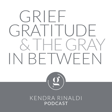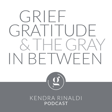
180. Advocacy for Parkinson’s Awareness and Caregivers with George Ackerman
Dr. George Ackerman (Sharon’s son) is from Brooklyn, N.Y. Now residing in Florida, he works in the fields of law, police, and education. George lost his mother, Sharon Riff Ackerman on 1/1/2020 due to Parkinson’s Disease.
George wanted to honor his mother and continue to help in the Parkinson’s awareness cause and did not know how to bring change. We started TogetherForSharon® as a family for the purpose of keeping my mother, Sharon Riff Ackerman’s, memory alive and to share the message of Parkinson’s Awareness and hope for a cure.
Today https://www.togetherforsharon.com/ reaches thousands of individuals across the country for PD Awareness. George currently interviews individuals throughout the Parkinson’s community including various foundations, caregivers, and Parkinson’s warriors to help share their stories and causes.
"I am on a mission, and nothing will ever stop me until there is a PD Cure.... nothing. Join me, share and we are a family in this mission toward a cure, always! " https://www.togetherforsharon.com/about-us/#mission
Author, A Son’s Journey from Parkinson’s Disease Caregiver to Advocate. To order your copy click https://a.co/d/gqUwKJX
Website https://www.togetherforsharon.com/
Email togetherforsharon@gmail.com



